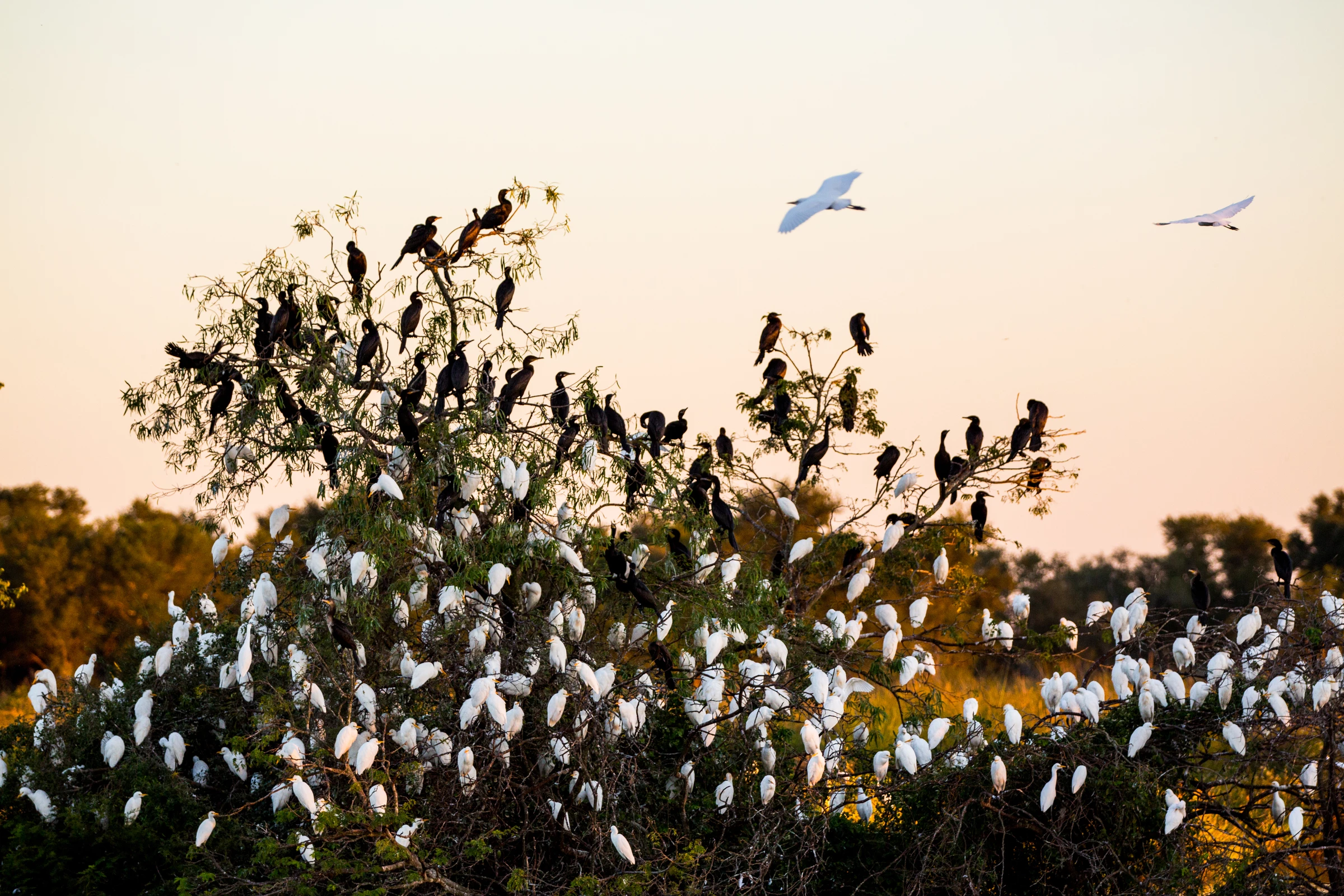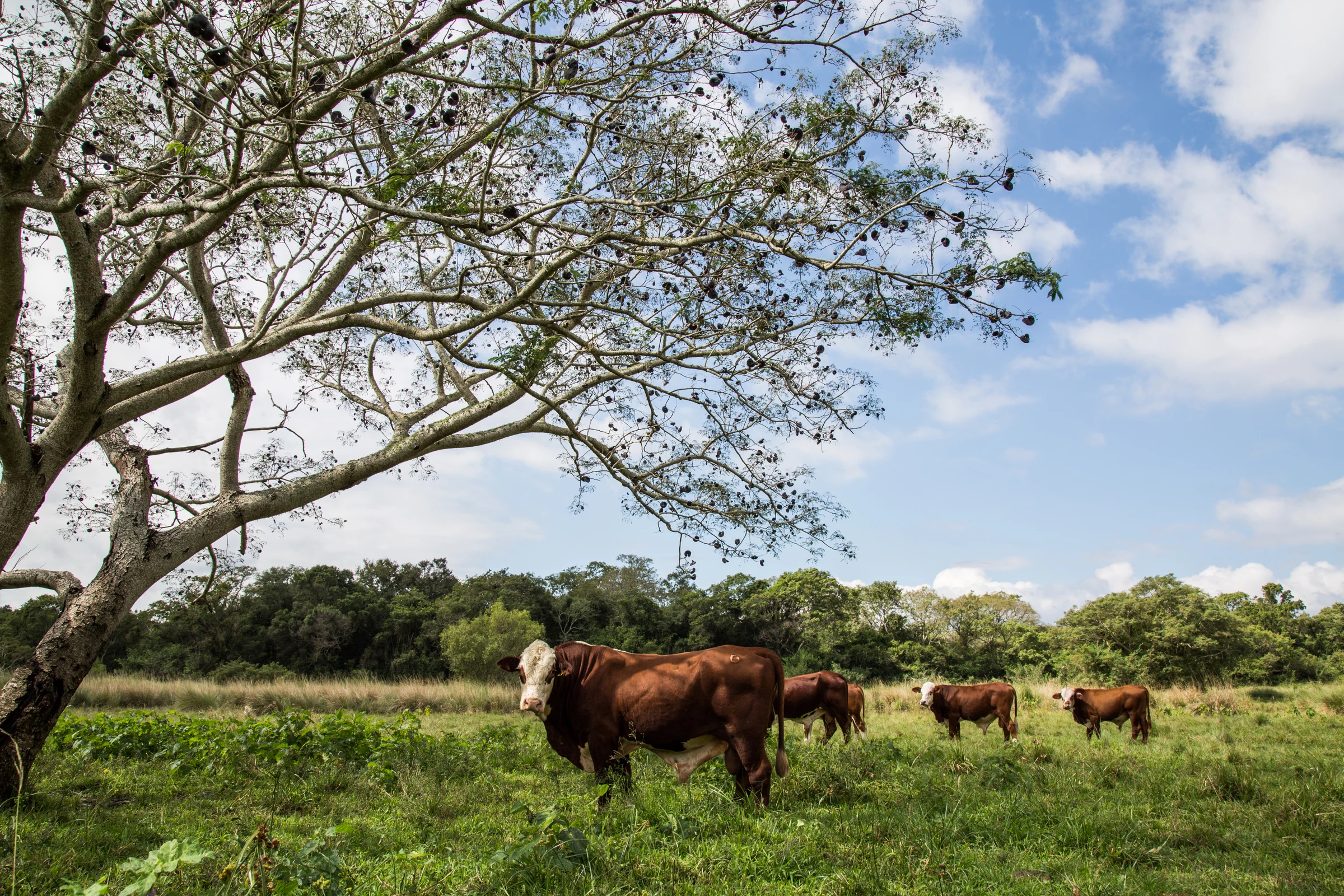Tackling deforestation in paraguay
Big banks and local civil society organisations. An unusual match for tackling deforestation? Quite the contrary. Yet to ensure optimal effectiveness, it’s essential both parties keep their eyes on a common goal. To learn more about this powerful duo, Dutch development bank FMO tells their story about a unique collaboration in Paraguay.
Home to some of the world’s most extraordinary species such as the anteater, tapir and river otter, the Chaco region in Paraguay covers over 100 million hectares of dry, tropical forest. But the habitat is under threat. One of the most sparsely inhabited areas in South America, approximately 250,000 hectares of forest are cut down per year, mainly for cattle rearing.
A substantial part of this deforestation is conducted outside of the law by cattle and agricultural farmers. Government regulation is problematic because they’re not always having the means to monitor who and who doesn’t have permission. In 2012, FMO decided to finance several local banks in Paraguay who among other are active in agro-forestry.

Responsible financing
Linda Broekhuizen, Chief Investment Officer of FMO, states: "We believe it is important that our customers, the local banks, are committed to stop illegal deforestation by their customers. With four banks, we started setting up guidelines for environmental and social management. If their customers do not adhere to these guidelines, then in time the financing can be stopped. These banks have voluntarily joined forces with fourteen of the seventeen regulated banks in Paraguay in a roundtable: the Mesa de Finanzas Sostenible. For them, the fact that almost all banks joined was essential in order to reduce the risk of customers moving to another bank for fear of the guidelines. This way, we have created a level playing field." From the offset of this initiative, WWF Paraguay and FMO have worked in union to develop guidelines for the banks.
Pioneering
This is good news for the Chaco region, because the more banks joining the Mesa, the better. But FMO and the other banks didn't act alone. When it came to accessing data to investigate who is cutting down trees illegally, civil society organisations were able to make invaluable contributions with their knowledge, such as satellite data.
Linda: "From the start, we have proposed to work with civil society organisations that have relevant data. This enables the banks to better monitor and analyse the activities of their customers."
Such collaboration was not without challenges however, especially for FMO. In Paraguay, banks and civil society organisations are often suspicious of each other. Banks usually see civil society organisations as too activist like, anti-corporate or being against progress. On the other hand, civil society organisations find it difficult to believe bankers who claim they want to conserve nature. In short, bringing these parties together is not easy. So how exactly do you set up a partnership?
Linda: "In this case we asked for the help of WWF Paraguay and IUCN NL, because they could involve two smaller, local civil society organisations. Although the banks found this difficult initially, we were able to convince them of the added value of the knowledge the organisations would bring to the table. It helped that WWF, as a well-known, international brand, supported these civil society organisations.”

Common goal
Linda firmly believes in a multi-stakeholder approach: "Public, private and civil society organisations all speak a different language, but they often have a shared goal. In this case; reducing (illegal) deforestation. How complicated this is varies from country to country and from sector to sector. In Paraguay, it wasn’t easy to set up a cooperation between parties that don’t naturally trust each other, but we have learned that you should always keep the common goal in mind. If you disagree on how to achieve that, then acknowledge these disagreements and keep communicating about them. By working together, you can create a lot more impact."
What was the impact of this collaboration in the Chaco region? Linda: "We have already developed sector guidelines for cattle, agriculture and the agro-industry sector – in order to provide sustainable financing for companies in these sectors. Now, we are developing a benchmark tool together with quality control of WWF-NL, WWF Paraguay, VBDO and IUCN NL, to evaluate the banking sector itself."
Lessons learned
According to Linda, collaboration is the key to success and scale. “Because mobilising the whole banking sector in the battle for nature conservation is something that a small civil society organisation cannot achieve by itself”.
In a nutshell, the lessons from this journey:
- Use the networks of well-known names such as WWF.
- Use the leverage of a large international party and investor such as FMO to mobilise the local financial or business sector.
- As a local organisation, use the data you have gathered in your dialogue.
- Define a common goal and always keep that in mind. Keep talking about it, even if you disagree on how to achieve that goal.
Read more
About collaboration and joint solutions for nature conservation
Related articles
5 years of Shared Resources, Joint Solutions
Securing rights in landscapes
Female leadership: stories of change
About SRJS
With SRJS, we support and strengthen local NGOs and civil society organisations in 16 countries, so that we can safeguard water supply, climate resilience and food security together with governments and companies. We also ensure that these organisations work together to become stronger.

